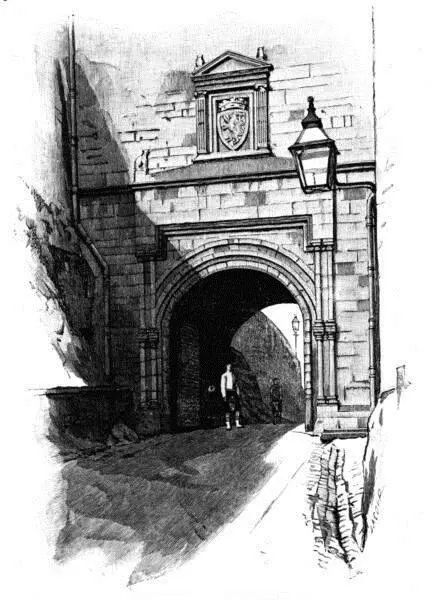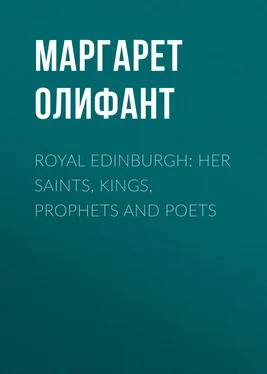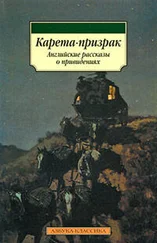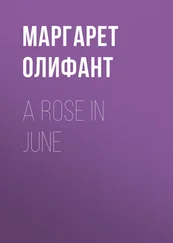Маргарет Олифант - Royal Edinburgh - Her Saints, Kings, Prophets and Poets
Здесь есть возможность читать онлайн «Маргарет Олифант - Royal Edinburgh - Her Saints, Kings, Prophets and Poets» — ознакомительный отрывок электронной книги совершенно бесплатно, а после прочтения отрывка купить полную версию. В некоторых случаях можно слушать аудио, скачать через торрент в формате fb2 и присутствует краткое содержание. Жанр: foreign_prose, История, literature_19, foreign_edu, foreign_antique, на английском языке. Описание произведения, (предисловие) а так же отзывы посетителей доступны на портале библиотеки ЛибКат.
- Название:Royal Edinburgh: Her Saints, Kings, Prophets and Poets
- Автор:
- Жанр:
- Год:неизвестен
- ISBN:нет данных
- Рейтинг книги:4 / 5. Голосов: 1
-
Избранное:Добавить в избранное
- Отзывы:
-
Ваша оценка:
- 80
- 1
- 2
- 3
- 4
- 5
Royal Edinburgh: Her Saints, Kings, Prophets and Poets: краткое содержание, описание и аннотация
Предлагаем к чтению аннотацию, описание, краткое содержание или предисловие (зависит от того, что написал сам автор книги «Royal Edinburgh: Her Saints, Kings, Prophets and Poets»). Если вы не нашли необходимую информацию о книге — напишите в комментариях, мы постараемся отыскать её.
Royal Edinburgh: Her Saints, Kings, Prophets and Poets — читать онлайн ознакомительный отрывок
Ниже представлен текст книги, разбитый по страницам. Система сохранения места последней прочитанной страницы, позволяет с удобством читать онлайн бесплатно книгу «Royal Edinburgh: Her Saints, Kings, Prophets and Poets», без необходимости каждый раз заново искать на чём Вы остановились. Поставьте закладку, и сможете в любой момент перейти на страницу, на которой закончили чтение.
Интервал:
Закладка:

INNER BARRIER, EDINBURGH CASTLE
It would be pleasant to think that Queen Jane meant something more than the mere bolstering up of one faction against another in the distracted kingdom by the abduction of her son. It is very possible indeed that she did so, and that to strengthen the hands of the man who was really Regent-Governor of Scotland, but whose power had been stolen from his hands by the unscrupulousness of Crichton, seemed to her a great political object, and the recovery of the supreme authority, which would seem to have appeared to all as infallibly linked with the possession of the young King, of the greatest importance. It is evident it was considered by the general public to be so; but there is something pitiful in the struggle for the poor boy, over whose small person those fierce factionaries fought, and in whose name, still so innocent and helpless as he was, so many ferocious deeds were done.
No sooner was he secure in Stirling than the Governor called together a convention of his friends, to congratulate each other and praise the wit and skill of "that noble woman, our soverain mother," who had thus set things right. "Whereby I understand," he says piously, "that the wisest man is not at all times the sickerest, nor yet the hardy man happiest," seeing that Crichton, though so great and sagacious and powerful, should be thus deceived and brought to shame. "Be of good comfort therefore," adds this enlightened ruler; "all the mischief, banishment, troubles, and vexation which the Chancellor thought to have done to us let us do the like to him." He ended this discourse by an intimation that he was about to besiege Edinburgh. "Let us also take up some band of men-of-war, and every man after his power send secret messages to their friends, that they and every one that favours us may convene together quietly in Edinburgh earlie in the morning, so that the Chancellor should not know us to come for the sieging of the castle till we have the siege even belted about the walls; so ye shall have subject to you all that would have arrogantly oppressed you."
This resolution was agreed to with enthusiasm, the Queen undertaking to provision the army "out of her own garners"; but the Governor had no sooner "belted the siege about the castle," an expression which renders most graphically the surrounding of the place, than the Chancellor, taken by surprise, prostrated by the loss of the King, and finding it impossible to draw the powerful Earl of Douglas to his aid, made overtures of submission, and begged for a meeting "in the fields before the gates," where, with a few chosen friends on either side, the two great functionaries of the kingdom might come to an agreement between themselves.
By this time there would seem to have begun that preponderating influence of the Douglas family in Scotland which vexed the entire reign of the second James, and prompted two of the most violent and tragic deeds which stain the record of Scottish history. James I. was more general in his attempt at the repression and control of his fierce nobility, and the family most obnoxious to him was evidently that of his uncle, nearest in blood and most dangerous to the security of the reigning race. The Douglas, however, detaches himself in the following generation into a power and place unexampled, and which it took the entire force of Scotland, and all the wavering and uncertain expedients of law, as well as the more decisive action of violence quite lawless, to put down. Whether there was in the pretensions of this great house any aim at the royal authority in their own persons, or ambitious assertion of a rival claim in right of the blood of Bruce, which was as much in their veins as in those of the Stewarts, as some recent historians would make out, it is probably now quite impossible to decide. The chroniclers say nothing of any such intention, nor do the Douglases themselves, who throughout the struggle never hesitated to make submission to the Crown when the course of fortune went against them. The Chancellor had been deeply stung, it is evident, by the answer of Douglas to his appeal, in which the fierce Earl declared that discord between "you twa unhappie tyrants" was the most agreeable thing in the world to him, and that he wished nothing more than that it should continue. Deprived of the sanction given to all his proceedings by the name of the King, outwitted among his wiles, and exposed to the ridicule even of those who had regarded his wisdom with most admiration, Crichton would seem to have turned fiercely upon the common opponent, perhaps with a wise prescience of the evil to come, perhaps only to secure an object of action which might avert danger from himself and bring him once more into command of the source of authority—most likely with both objects together, the higher and lower, as is most general in our mingled nature. The meeting was held accordingly outside the castle gates, the Chancellor coming forth in state bearing the keys of the castle, which were presented, Buchanan says, to the King in person, who accompanied the expedition, and who restored the great functionary to his office. The great keys in the child's hand, the little treble pipe in which the reappointment would be made, the tiny figure in the midst of all these plotters and warriors, gives a touch of pathos to the many pictorial scenes of an age so rich in the picturesque; but the earlier writers say nothing of the little James's presence. There was, however, a consultation between the two Regents, and Douglas's letter was read with such angry comments as may be supposed. The Earl's contempt evidently cut deep, and strongly emphasised the necessity of dealing authoritatively with such a high-handed rebel against the appointed rulers.
It would appear, however, that little could be done against the immediate head of that great house, and the two rulers, though they had made friends over this common object, had to await their opportunity, and in the meantime do their best to maintain order and to get each the chief power into his own hands. Crichton found means before very long to triumph over his adversaries in his turn by rekidnapping the little King, for whom he laid wait in the woods about Stirling, where James was permitted precociously to indulge the passion of his family for hunting. No doubt the crafty Chancellor had pleasant inducements to bring forward to persuade the boy to a renewed escape, for "the King smiled," say the chroniclers, probably delighted by the novelty and renewed adventure—the glorious gallop across country in the dewy morning, a more pleasant prospect than the previous conveyance in his mother's big chest. Thus in a few hours the balance was turned, and it was once more the Chancellor and not the Governor who could issue ordinances and make regulations in the name of the King.
Nothing, however, could be more tedious and trifling in the record than these struggles over the small person of the child-king. But the story quickens when the long-desired occasion arrived, and the two rulers, rivals yet partners in power, found opportunity to strike the blow upon which they had decided, and crush the great family which threatened to dominate Scotland, and which was so contemptuous of their own sway. The great Earl, Duke of Touraine, almost prince at home, the son of that Douglas whose valour had moved England, and indeed Christendom, to admiration, though he never won a battle—died in the midst of his years, leaving behind him two young sons much under age as the representatives of his name. It is extraordinary to us to realise the place held by youth in those times, when one would suppose a man's strength peculiarly necessary for the holding of an even nominal position. Mr. Church has just shown in his Life of Henry V how that prince at sixteen led armies and governed provinces; and it is clear that this was by no means exceptional, and that the right of boys to rule themselves and their possessions was universally acknowledged and permitted. The young William, Earl of Douglas, is said to have been only about fourteen at his father's death. He was but eighteen at the time of his execution, and between these dates he appears to have exercised all the rights of independent authority without tutor or guardian. The position into which he entered at this early age was unequalled in Scotland, in many respects superior to that of the nominal sovereign, who had so many to answer to for every step he took—counsellors and critics more plentiful than courtiers. The chronicles report all manner of vague arrogancies and presumptions on the part of the new Earl. He held a veritable court in his castle, very different from the semi-prison which, whether at Edinburgh or Stirling, was all that James of Scotland had for home and throne—and conferred fiefs and knighthood upon his followers as if he had been a reigning prince. "The Earl of Douglas," says Pitscottie, "being of tender age, was puffed up with new ambition and greater pride nor he was before, as the manner of youth is; and also prideful tyrants and flatterers that were about him through this occasion spurred him ever to greater tyranny and oppression." The lawless proceedings of the young potentate would seem to have stirred up all the disorderly elements in the kingdom. His own wild Border county grew wilder than ever, without control. Feuds broke out over all the country, in which revenge for injuries or traditionary quarrels were lit up of the strong hope in every man's breast not only of killing his neighbour, but taking possession of his neighbour's lands. The caterans swarmed down once more from the mountains and isles, and every petty tyrant of a robber laird threw off whatever bond of law had been forced upon him in King James's golden days. This sudden access of anarchy was made more terrible by a famine in the country, where not very long before it had been reported that there was fish and flesh for every man. "A great dearth of victualls, pairtly because the labourers of the ground might not sow nor win the corn through the tumults and cumbers of the country," spread everywhere, and the state of the kingdom called the conflicting authorities once more to consultation and some attempt at united action.
Читать дальшеИнтервал:
Закладка:
Похожие книги на «Royal Edinburgh: Her Saints, Kings, Prophets and Poets»
Представляем Вашему вниманию похожие книги на «Royal Edinburgh: Her Saints, Kings, Prophets and Poets» списком для выбора. Мы отобрали схожую по названию и смыслу литературу в надежде предоставить читателям больше вариантов отыскать новые, интересные, ещё непрочитанные произведения.
Обсуждение, отзывы о книге «Royal Edinburgh: Her Saints, Kings, Prophets and Poets» и просто собственные мнения читателей. Оставьте ваши комментарии, напишите, что Вы думаете о произведении, его смысле или главных героях. Укажите что конкретно понравилось, а что нет, и почему Вы так считаете.












